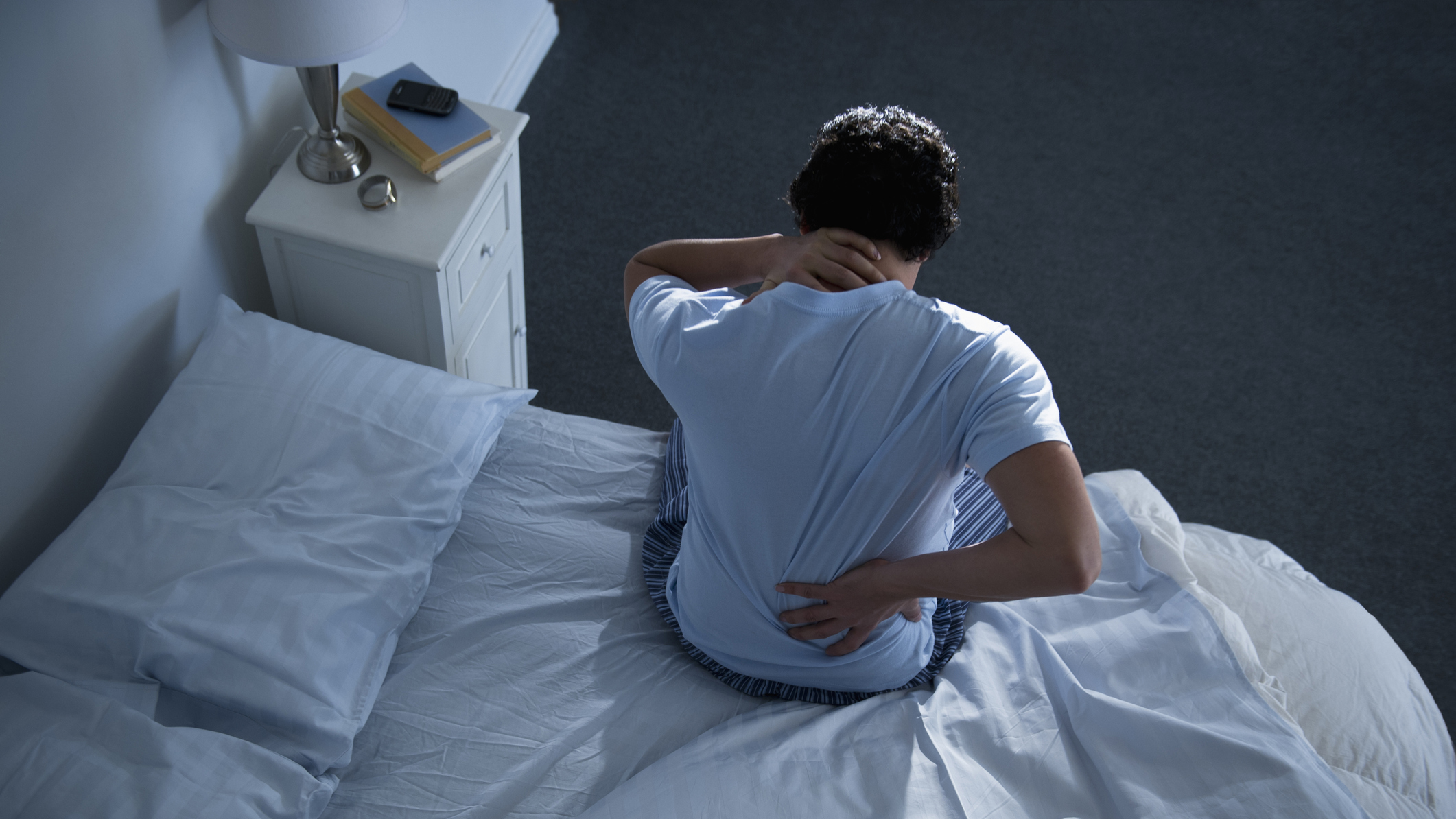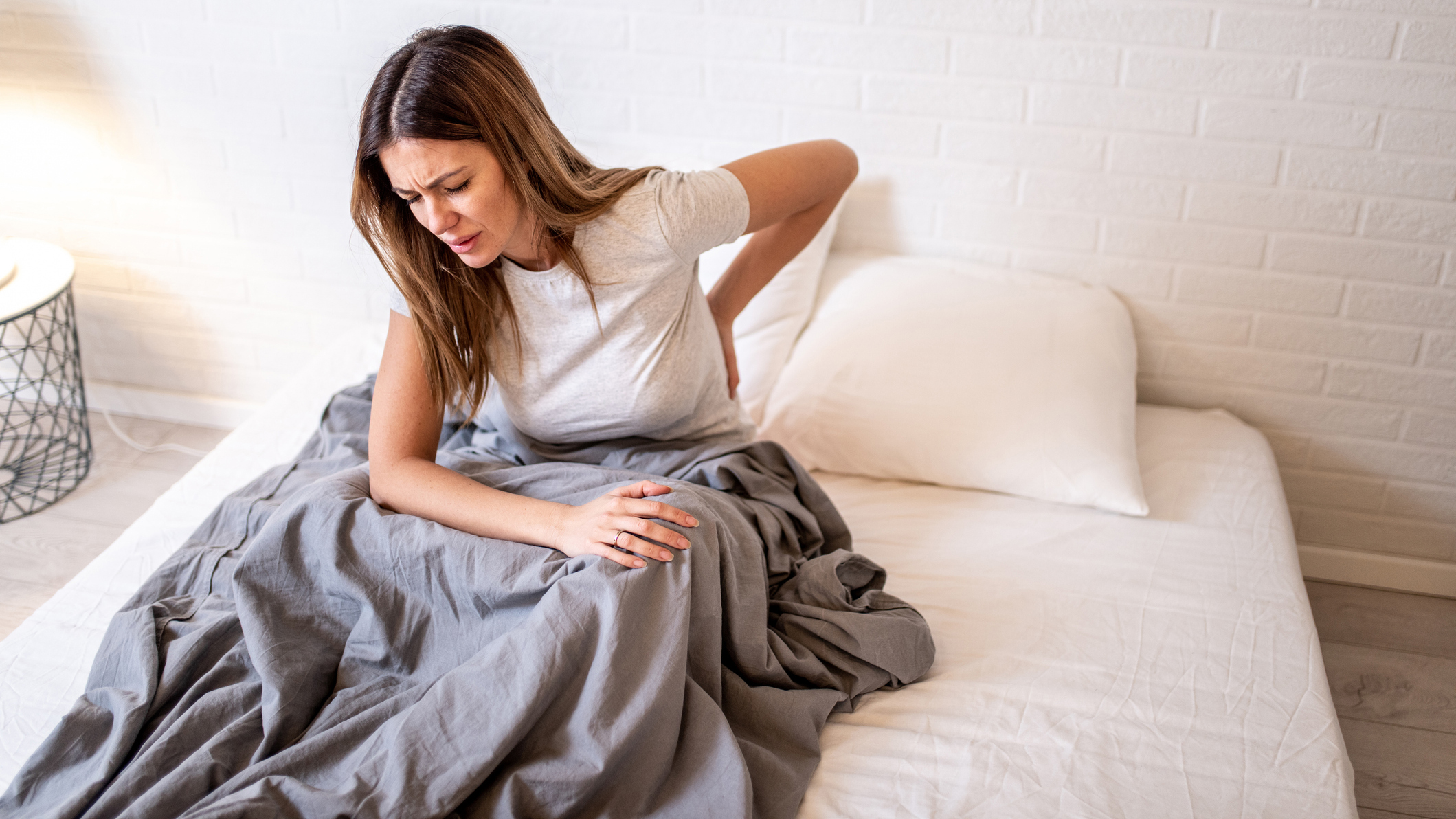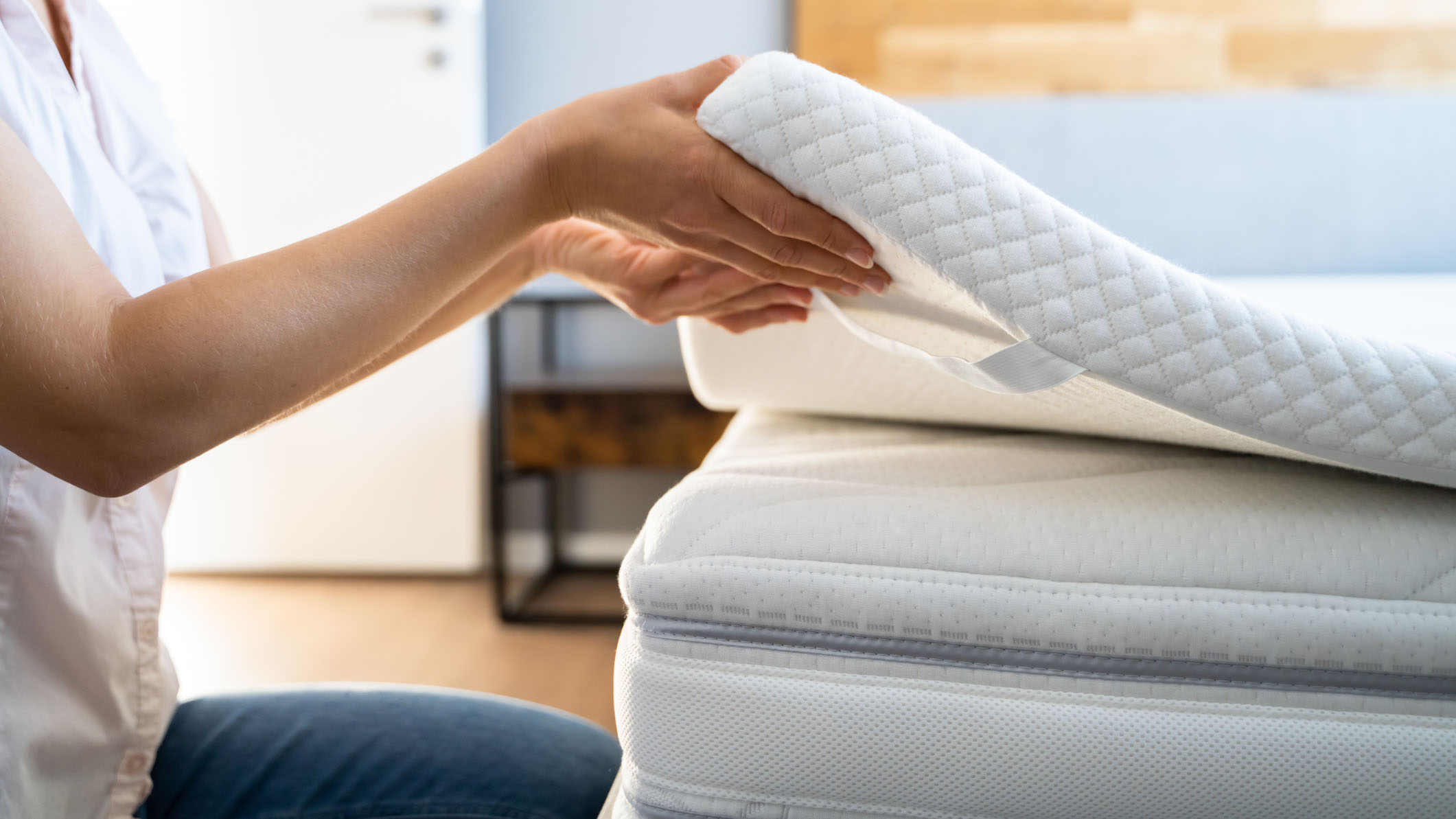Why you have back pain after sleeping on a new mattress and what to do about it
Is your new mattress behind for your back pain?

A brand new mattress should feel like diving into dreamland, but for many of us, the first night on a new bed can have a rude awakening. Back pain is a common complaint of a new mattress and it can make your investment feel like a waste of money.
Even the best mattresses we've tested weren't necessarily comfortable right away, as it takes some time for your body to adjust. But if you're serious about sleep, buying a new mattress that suits you is the best thing you can do. Unfortunately, that sometimes means dealing with a few weeks of back ache.
However, persistent back ache can be a sign your new mattress isn't right for you. In this guide we'll explain why a new bed can cause back ache, plus some tips for dealing with it if you plan on shopping the mattress sales.
Why you have back pain after sleeping on a new mattress
The first few nights on a new mattress can feel uncomfortable, but that doesn't necessarily mean the problem is with your bed. There are a few different reasons why a new bed can cause back pain, including that awkward adjustment period...
1. You need time to get used to it
Upgrading your mattress can work wonders for your sleep, but it takes time for your body to get used to the new feel (particularly if you've been sleeping in the dips and dents of a worn out mattress.)
What's more, a mattress needs time to soften and loosen as you wear it in — this is why your model might feel different to the worn model you tested in store. The lack of yield from your fresh-out-the-box bed could be the cause of your aching mornings.

2. It's wrong for your sleep style
However, a bad back from a new mattress isn't always a problem that time can fix. It might be that your new mattress isn't right for your sleep style.
Sign up to get the BEST of Tom's Guide direct to your inbox.
Get instant access to breaking news, the hottest reviews, great deals and helpful tips.
Side sleepers tend to favor softer mattresses, while stomach and back sleepers need a firmer support (although chiropractors recommend avoiding stomach sleeping altogether.)
If you've chosen the wrong feel or support level for your sleep preferences, it could be causing aches and pains. Something I discovered when I switched my hybrid mattress for a memory foam.
3. You need a new bed frame
Replaced your mattress but kept your old bed frame? Then it might not provide the supportive base your new mattress needs. The wrong bed frame can lead to sinking materials, excess firmness, or simply an overhanging mattress.
How to reduce back pain sleeping on a new mattress
If you were looking forward to enjoying better sleep on a brand new mattress, you might be disappointed by this initial discomfort. Before you think about replacing the bed, here are some thing you can do about it...
1. Add a mattress topper
A new mattress can feel hard at first, and one of the easiest ways to soften a firm mattress is with a topper. The best mattress toppers can overhaul the feel of your bed, adding an extra layer of cushioning to cradle the joints while retaining support to the lumbar region.
Mattress toppers range from very cheap to several hundred dollars. If you're looking for a short-term solution to a new mattress, a budget friendly topper can add a touch of softness without breaking the bank. But if you're after a long-term transformation, it's worth investing in a durable, high quality topper.

2. Place a pillow under your back
A pillow under your back essentially acts as targeted pressure relief, providing the comfort of a mattress topper on a smaller scale. Gently cushioning the back, the pillow should help ease the pressure your body places on the mattress while adding a touch more support to the lumbar region.
3. Try a new sleeping position
The best mattresses for side sleepers have a different feel to the best mattresses for stomach sleepers, and firm beds tend to suit those who lie on their back or front. If your new mattress is causing some pain, try adjusting your sleeping position for a few nights, to see if that can ease any aches.
4. Give it time
Here at Tom's Guide we spend at least three weeks on a mattress as part of our mattress review process. That's because we know how a bed feels right away isn't necessarily how it will feel once you've got used to it.
The best thing to do if your new mattress is causing back pain is, unfortunately, to simply wait it out. Try sitting and lying on the bed when you aren't sleeping, to speed up the adjustment process. With time you should find the mattress softens up and you (and your body) adjust to the new feel.
If that doesn't happen, it's time to move onto the final step...

5. Return the mattress
Even after a few weeks spent sleeping on the mattress, you might find you're still waking up with back pain. This is likely to be a sign that the bed isn't right for your sleep needs. You can try to change the feel with a mattress protector, but it's probably time to look into a return.
A mattress trial ensures you can return your bed within a certain time period, without any hassle. An average mattress trial lasts for 100 days — that's over three months to get used to the bed. Some last as long as a year, giving you plenty of time to decide if this is the mattress for you. Contact the brand directly to organize your return.
While this might be a frustrating outcome, you should now better understand what you're looking for in a bed. And our guide to the best mattresses for back pain can help you find a more fitting sleep setup.

Ruth is a staff writer at Tom’s Guide, covering all things mattress and sleep. She has a deep interest in the link between sleep and health, and has tried enough mattresses to know the right bed really can make a difference to your wellbeing. At Tom’s Guide she writes to help people sleep better, from how-tos to the latest deals to mattress reviews, and has interviewed an array of specialists who share her passion. Before joining the team at Tom’s Guide, Ruth worked as a sleep and mattress writer for our sister website, TechRadar.
